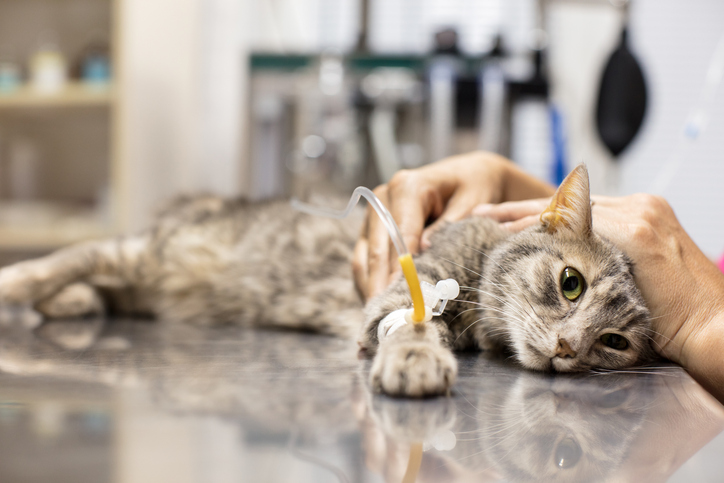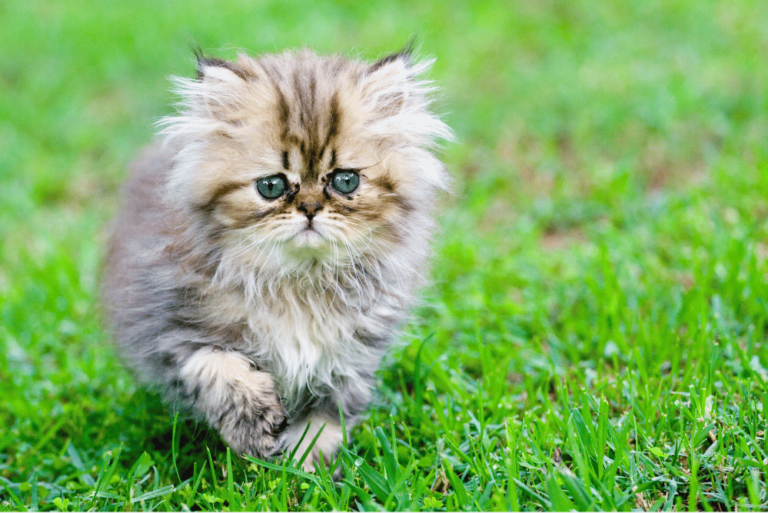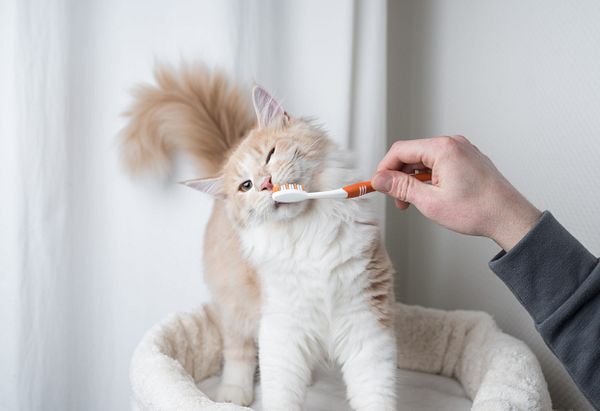Cat ailments and conditions
Signs of Illness in Cats
Cats are notorious for hiding signs of illness, making it important for pet owners to be aware of common indicators that their feline companions may be unwell. One telltale sign is a noticeable change in behavior. Cats that suddenly become withdrawn, irritable, or excessively needy may be trying to communicate that something is amiss. In addition, a decreased appetite or sudden weight loss can be indicative of underlying health problems. It is crucial to monitor your cat’s eating habits and consult a veterinarian if any significant changes occur.
Another notable sign of illness in cats is changes in litter box behavior. Cats are usually quite fastidious about their bathroom habits, so irregularities such as urinating outside the litter box or straining to urinate can be a red flag. Likewise, diarrhea or constipation that lasts for more than a day or two should not be overlooked. Any unusual or persistent abnormalities in the cat’s bowel movements could be a sign of a digestive disorder or other health issue. Pet owners should stay vigilant and seek professional advice if these symptoms persist.
Common Respiratory Conditions in Cats
When it comes to our feline friends, it is essential to be aware of common respiratory conditions that cats may experience. One of these conditions is commonly known as feline upper respiratory tract infection. This viral infection affects the nose, throat, and sinus area of our beloved cats. Symptoms can include sneezing, nasal discharge, watery eyes, coughing, and even loss of appetite. Kittens and cats with weakened immune systems are particularly susceptible to this infection, which can be transmitted through close contact or sharing of contaminated objects. If you notice any of these signs in your cat, it is crucial to seek veterinary attention promptly to ensure appropriate treatment and prevent further complications.
Another respiratory condition that cats may develop is feline asthma. This chronic condition affects the lungs and causes recurring episodes of breathing difficulties. Cats with asthma may exhibit symptoms such as coughing, wheezing, rapid breathing, and even open-mouth breathing. Stress, allergens, and environmental factors can trigger asthma attacks in cats, making it important to maintain a calm and clean living environment for them. Treatment for feline asthma typically involves managing symptoms through medication and reducing exposure to triggers. If you suspect your cat may be suffering from asthma, consult with your veterinarian for a proper diagnosis and personalized treatment plan to help your furry companion breathe easier.
Digestive Disorders in Cats
Gastrointestinal issues can affect cats of all ages and breeds, leading to discomfort and potential health complications. One common digestive disorder in cats is gastritis, which refers to the inflammation of the stomach lining. Cats with gastritis may experience symptoms such as vomiting, decreased appetite, and abdominal pain. This condition can be caused by various factors, including dietary indiscretion, food allergies, or infections. Timely veterinary intervention, which often involves dietary changes and medication, can help manage gastritis and alleviate the associated symptoms.
Another digestive disorder that cats may encounter is inflammatory bowel disease (IBD). This chronic condition is characterized by inflammation of the gastrointestinal tract, specifically the small intestine and the stomach. The exact cause of IBD is not fully understood, but it is believed to be related to an abnormal immune response in the gut. Cats with IBD may display signs such as chronic diarrhea, weight loss, and vomiting. Treatment for IBD typically involves dietary modification, medications to reduce inflammation, and occasionally, immunosuppressive drugs to manage the immune system response. Early detection and ongoing management of IBD are crucial in preventing further complications and improving the overall health and well-being of the affected feline.
Skin Problems in Cats
Cats are known for their sleek and shiny coats, but occasionally they may experience skin problems that can cause discomfort and distress. One common skin issue in cats is flea allergies. Fleas are tiny, parasitic insects that feed on the blood of animals. When a cat is allergic to fleas, even a single bite can cause intense itching and irritation. This can lead to excessive scratching, hair loss, and the formation of red, inflamed patches on the skin. It is crucial for cat owners to regularly check their feline friends for fleas and use appropriate flea prevention medications to avoid this problem.
Another skin problem that can affect cats is dermatitis. Dermatitis is an inflammation of the skin that can have various causes, such as contact with irritants or allergens, fungal or bacterial infections, or even hormonal imbalances. Cats with dermatitis may exhibit symptoms like redness, swelling, itching, and the formation of scabs or crusts on the skin. In severe cases, the cat may excessively groom or scratch the affected areas, leading to further damage. Identifying the underlying cause of dermatitis is essential for effective treatment, which may include topical medications, dietary changes, or even elimination of potential allergens from the cat’s environment.
Urinary Tract Issues in Cats
Urinary tract issues are a common problem that cats may experience, often causing discomfort and distress. One significant condition is known as feline lower urinary tract disease (FLUTD), which encompasses various disorders affecting the bladder and urethra. Cats with FLUTD may exhibit symptoms such as increased frequency of urination, difficulty or pain during urination, and the presence of blood in the urine. It is essential to note that FLUTD can have multiple underlying causes, including urinary tract infections, bladder stones, and even stress. Therefore, it is crucial to seek veterinary attention promptly for an accurate diagnosis and proper treatment.
Another urinary tract issue that cats may encounter is feline idiopathic cystitis (FIC). This condition is recognized as inflammation of the bladder, and its exact cause remains unknown. Cats with FIC typically exhibit similar symptoms to those with FLUTD, such as frequent urination, straining in the litter box, and urinating outside the designated areas. Moreover, FIC has been linked to factors such as stress, changes in the environment, and even a cat’s specific personality characteristics. Although treatment for FIC primarily focuses on managing the cat’s environment and reducing stress levels, it is crucial to consult with a veterinarian to ensure the best course of action for your feline companion.
Neurological Disorders in Cats
Neurological disorders in cats can present a range of symptoms, often leading to a loss of coordination and abnormal behavior. One common neurological disorder in cats is epilepsy, which causes repeated seizures. During a seizure, a cat may experience convulsions, muscle stiffness, and loss of consciousness. It is important for cat owners to carefully observe and document any seizure activity, as this will assist veterinarians in diagnosing and treating the condition.
Another neurological disorder that can affect cats is vestibular disease. This condition disrupts the normal function of the inner ear and can cause balance problems, disorientation, and head tilting. Cats with vestibular disease may appear dizzy, have difficulty walking or standing, and might even show signs of nausea or vomiting. While the symptoms can be distressing for both the cat and the owner, most cats with vestibular disease can recover with appropriate veterinary care and support.
Cardiovascular Diseases in Cats
Cardiovascular diseases in cats can be a serious concern for feline owners. Cats may be susceptible to a variety of heart conditions that can impact their overall health and longevity. One common cardiovascular issue in cats is hypertrophic cardiomyopathy, which is characterized by the thickening of the heart muscles. This condition can lead to symptoms such as difficulty breathing, weakness, and fainting. It is important for cat owners to be vigilant in monitoring their pet’s heart health and seeking veterinary care if any signs of heart disease are observed.
Another cardiovascular condition that cats may experience is congestive heart failure. This occurs when the heart is unable to pump blood effectively, resulting in fluid buildup in the lungs or other body tissues. Cats with congestive heart failure may exhibit symptoms such as coughing, difficulty breathing, decreased appetite, or lethargy. Treatment options for feline cardiovascular diseases may include medication to manage symptoms, dietary changes to support heart health, and regular monitoring by a veterinarian. Early detection and intervention can greatly improve a cat’s prognosis and quality of life when it comes to cardiovascular diseases.
Feline Infectious Diseases
Feline Infectious Diseases are a significant concern for cat owners worldwide. These diseases are caused by various infectious agents, such as viruses, bacteria, fungi, and parasites, that can be transmitted from one cat to another. One common infectious disease in cats is feline immunodeficiency virus (FIV). FIV weakens a cat’s immune system, making them more susceptible to other infections and illnesses. It is important to note that FIV cannot be transmitted to humans or other non-feline animals. Another infectious disease that affects cats is feline leukemia virus (FeLV). FeLV attacks a cat’s immune system and can lead to various complications, including anemia, cancer, and weakened defense against other infections.
In addition to FIV and FeLV, there are other feline infectious diseases to be aware of. Feline upper respiratory tract infections, also known as cat flu, are caused by several different viruses, including feline herpesvirus and feline calicivirus. These viruses can cause symptoms like sneezing, coughing, nasal discharge, and fever. Another common infectious disease is feline infectious peritonitis (FIP), which is caused by a coronavirus. FIP can affect various organs and lead to symptoms such as weight loss, fever, fluid accumulation in the abdomen or chest, and neurological signs. It is essential for cat owners to be aware of the signs and symptoms of these infectious diseases to ensure early detection and prompt treatment.
What are the signs of illness in cats?
The signs of illness in cats can vary, but common symptoms include loss of appetite, lethargy, vomiting, diarrhea, coughing, sneezing, and changes in behavior or litter box habits.
What are common respiratory conditions in cats?
Common respiratory conditions in cats include feline upper respiratory infection (URI), feline viral rhinotracheitis (FVR), and feline calicivirus (FCV). These infections can cause symptoms such as sneezing, coughing, nasal discharge, and difficulty breathing.
What are some digestive disorders that can affect cats?
Cats can experience digestive disorders such as gastritis, pancreatitis, inflammatory bowel disease (IBD), and gastroenteritis. These conditions can cause symptoms like vomiting, diarrhea, abdominal pain, and loss of appetite.
What are common skin problems in cats?
Common skin problems in cats include allergies, dermatitis, flea infestations, ringworm, and abscesses. These conditions can result in itching, redness, hair loss, skin lesions, and swelling.
What are urinary tract issues that can affect cats?
Cats can develop urinary tract issues such as urinary tract infections (UTIs), urinary blockage, bladder stones, and feline lower urinary tract disease (FLUTD). Symptoms may include frequent urination, straining to urinate, bloody urine, and urinating outside the litter box.
What are some neurological disorders that cats can experience?
Neurological disorders that can affect cats include seizures, feline ischemic encephalopathy, vestibular disease, and spinal cord injuries. These conditions can manifest as tremors, balance problems, paralysis, and altered behavior.
What are common cardiovascular diseases in cats?
Common cardiovascular diseases in cats include hypertrophic cardiomyopathy (HCM), heartworm disease, and congestive heart failure. Cats with these conditions may exhibit symptoms such as difficulty breathing, coughing, lethargy, and sudden weight loss.
What are feline infectious diseases?
Feline infectious diseases are contagious illnesses that can be caused by viruses, bacteria, fungi, or parasites. These diseases include feline leukemia virus (FeLV), feline immunodeficiency virus (FIV), feline infectious peritonitis (FIP), and toxoplasmosis. They can result in a variety of symptoms and can be potentially life-threatening for cats.







